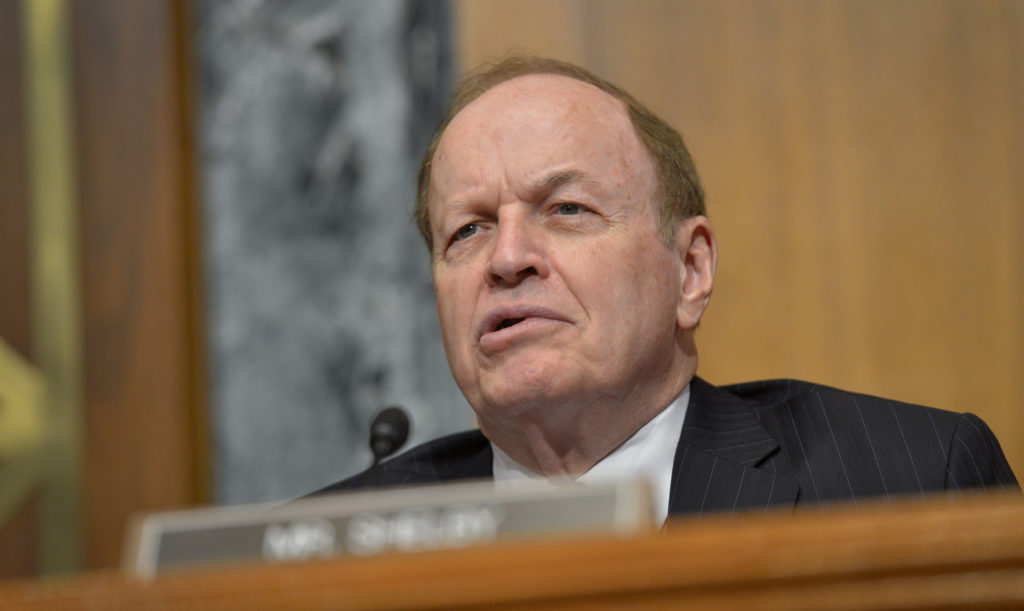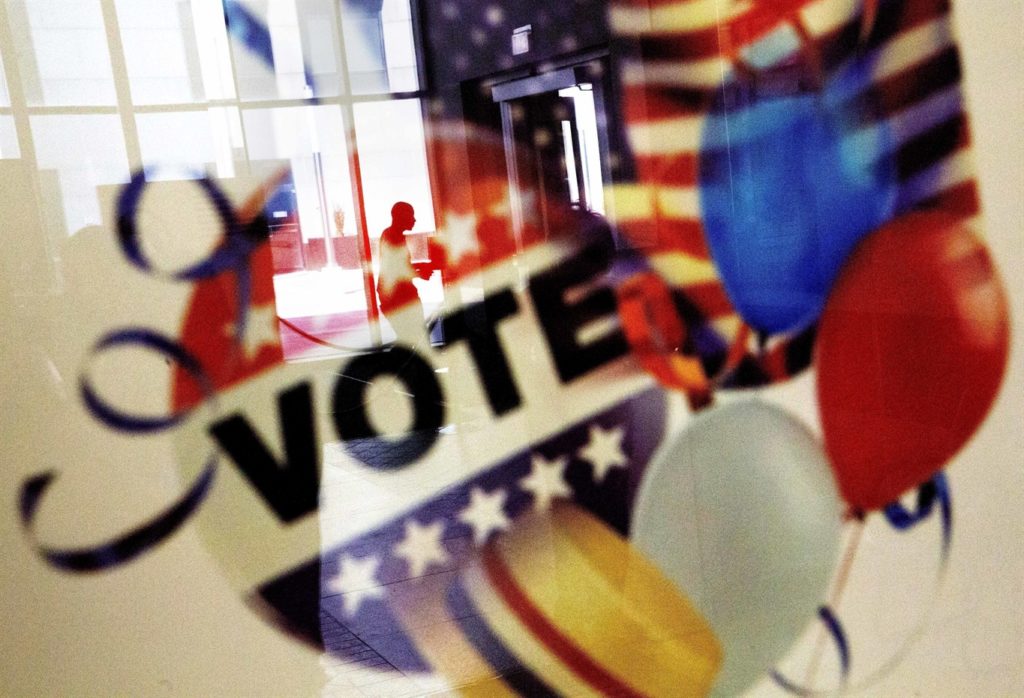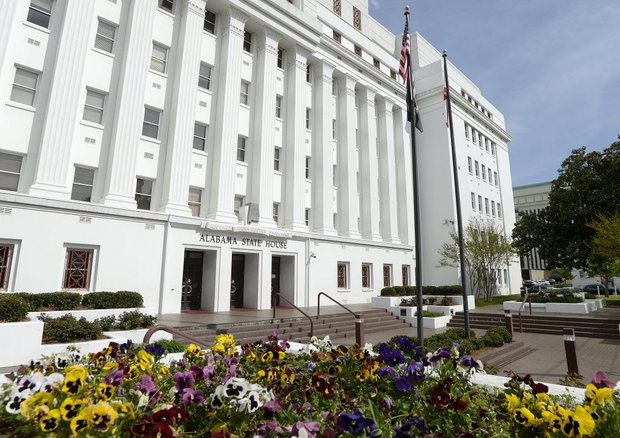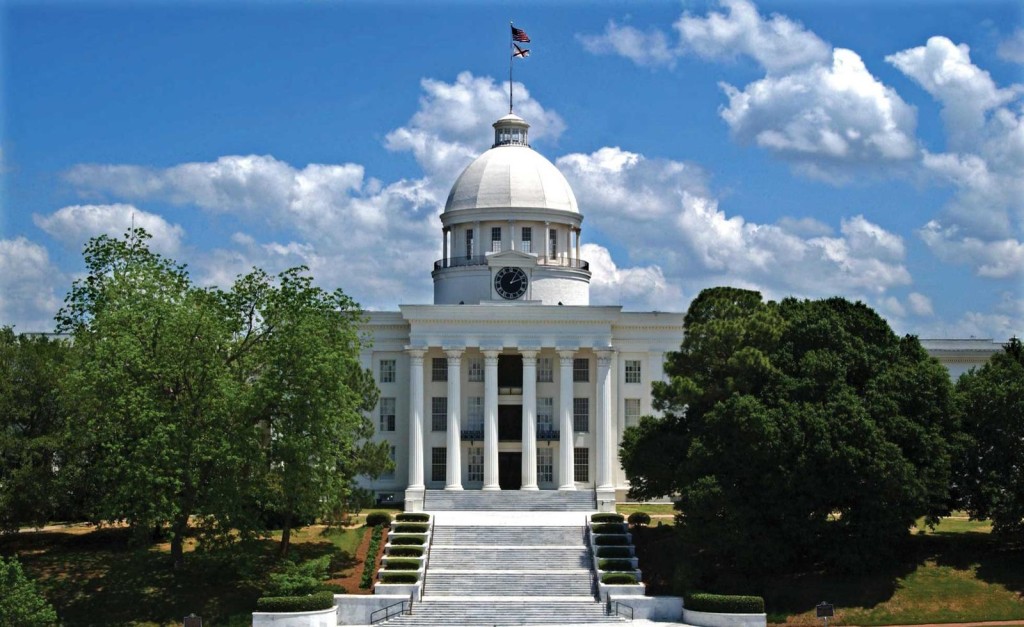Steve Flowers: Supreme Court rules states – can collect online sales tax

The State of Alabama’s fiscal year begins next week on October 1. Our state’s finances are not the best in the world. However, they got a boost from the U.S. Supreme Court earlier this year, The high tribunal ruled that states can collect sales tax on internet sales. This was one of the most inequitable scenarios I have ever seen. If you went to the corner hardware store or Lowe’s or Walmart to buy a hammer and paint, you paid sales tax. However, if you bought these same items online you did not. That is not fair to the store or the state. What is even more unfair is if your wife went down to the local dress shop and tried on an expensive dress she liked and then came home and bought it online. How fair is that to the store, the clerk at the store or the state. Finally, and thankfully, the Supreme Court clarified this inequality that had persisted for decades, since the inception of the internet. Alabama had already gotten ahead of the curve in regards to collecting online sales tax. Through the wise stewardship of House Ways and Means Chairman, Steve Clouse, R-Ozark, we had joined 19 other states in passing legislation that companies were to voluntarily pay the online sales tax. The legislation passed in 2015 was entitled the Simplified Sellers Use Tax. It allowed companies the permission to collect sales tax to be remitted to the state voluntarily in exchange for locking in a fixed rate of 8 percent no matter where in the state an online item was sold. As you know, the sales tax rate deviates throughout each city and locale. In Alabama’s case, the money collected under our SSUT Act was divided 50/50 between the state and cities and counties. The city’s and county’s half is disbursed based on population. The state’s half is divided 75 percent to the General Fund and 25 percent to the Education Fund. Chairman Clouse estimates that the state will reap an additional $18-20 million from the Supreme Court decision. The Supreme Court’s 5-to-4 ruling overruled decades of old decisions that had cost the state billions of dollars over the years. The cases the Court overturned said that if a business was shipping an online customer’s purchase to a state where the business did not have a physical presence like a store, warehouse, or office, the business did not have to collect sales tax and remit to the state. Over the decades this has been referred to as the Physical Presence Rule. Retiring Justice, Anthony Kennedy, wrote the majority opinion. He said, “Every year the Physical Presence Rule becomes further removed from economic reality and results in significant revenue losses to the state.” Retail trade groups praised the ruling saying that it levels the playing field for local and online businesses. President Trump praised the decision via Twitter. The President hailed the Supreme Court opinion as a “Big victory for fairness and for our country.” Speaking of President Donald Trump and the Supreme Court, it is said and it is very true that the greatest legacy a U.S. President can record is an appointment to the U.S. Supreme Court. Trump has had two in the first two years. Regardless of what transpires in the next two years of Trump’s reign, from conservative Americans viewpoint, this presidency has been a success. The nominations of Neil Gorsuch last year and Brett Kavanaugh this year were BIG. Both men are in their early 50’s and will make a powerful impact on public policy and law in America for decades. Long after Trump is gone, his legacy as a stalwart, conservative President will live on through Kavanaugh and Gorsuch. Both are also men of character with impeccable credentials. They are strict Constitutional constructionists and adherents. Their intellectual prowess will be indelibly inscribed into the Law of the Land for generations. As former President Barack Obama said, the night that Hillary Clinton lost to Donald Trump, “Elections have consequences.” See you next week. ••• Steve Flowers is Alabama’s leading political columnist. His weekly column appears in over 60 Alabama newspapers. He served 16 years in the state legislature. Steve may be reached at, www.steveflowers.us.
Steve Flowers: Richard Shelby eclipsing Alabama greats in annals of senatorial lore

A few weeks back my column illuminated the career and influence attained by our senior U.S. Senator Richard Shelby. In the column and in my book, “Six Decades of Alabama Political Stories,” I reference the fact that our current senior senator will be regarded as one of Alabama’s greatest U.S. Senators? I consider Lister Hill, John Sparkman, and Richard Shelby in that triumvirate. However, history more than likely will reveal that Shelby is eclipsing Hill and Sparkman in the annals of senatorial lore. Shelby is chairman of the Senate Rules Committee. In his illustrious 31-year tenure in the Senate he has chaired the Senate Intelligence Committee and the Senate Banking Committee, which in itself parallels the achievements of Hill and Sparkman. However, Richard Shelby is next in line to take over the powerful Senate Appropriations Committee. Therefore, it is almost comical that a few right-wing fringe members of the state Republican Party along with some kook from Texas are promising some resolution to censure Senator Shelby for not voting for Roy Moore in last year’s election. If these folks had even walking around political sense they would be promoting a ticker tape parade for Shelby. I would suggest that Richard Shelby could care less what some members of the Alabama Republican Party say about his vote in the recent election. Members of political party organizations have an inflated opinion of their influence in politics and public policy. Being a member of a state political party has no more effect on politics than being president of the local Civitan Club. Their primary function is to set the Primary dates. Therefore, when these political party operatives get together to debate this benign resolution on February 24, they may imagine that it matters what they do. However, you can be assured that nobody cares, much less Shelby. Resolutions passed in political party gatherings have no effect or relevance. It is very doubtful that this proposed resolution will see the light of day. Most people who are political party operatives are logical folks and would not want to offend or insult Senator Shelby. He is the Republican Party of Alabama in the eyes of the nation. If it were to pass, he would graciously ignore it and hold no grudges. When Kay Ivey became governor last year, the first thing she did was to reverse the decision of Governor Robert Bentley on the date of the election for Jeff Sessions’ senate seat. Bentley had set it for this year when everything runs anyway. Ivey decided that it should be held forthwith and that a Special Election would be in 2017. However, this Special Election costs the beleaguered State General Fund $11 million. If it were held this year it would have cost the state zero – we were voting anyway. This $11 million is nothing to sneeze at when it comes to state revenue. This aspect caught the eye of House Ways and Means chairman, Steve Clouse, R-Ozark. Clouse, who is a wise steward of the state’s coffers, and is tasked with balancing the budget, has set out to rectify and clarify when any future election for a Senate Seat shall be held. He has offered a bill to set the dates and clarify “forthwith.” Clouse’s Bill says that the election will be held at the next General election. His legislation has already passed the House and is awaiting action in the State Senate. Steve Clouse is a popular Wiregrass legislator who epitomizes integrity and espouses fiscal conservatism. While speaking of popularity in the Wiregrass, Governor Kay Ivey did a good day’s work when she picked Dothan Circuit Judge, Brad Mendheim, to fill the vacancy on the State Supreme Court. It is appropriate that she appointed Mendheim, a Wiregrass judge, to fill the seat of Justice Glen Murdock, another Wiregrass native. I have never seen or heard of anybody more respected in their hometown than 51-year-old Brad Mendheim is in Dothan. He was born and raised in Houston County and has been a Circuit Judge for 10 years. He is a deacon in the First Baptist Church of Dothan. He graduated in a stellar class that included Dr. Russ Holman, who is one of the most prominent radiologist in the state. See you next week. ••• Steve Flowers is Alabama’s leading political columnist. His weekly column appears in over 60 Alabama newspapers. He served 16 years in the state legislature. Steve may be reached at www.steveflowers.us.
House Cmte approves bill authorizing gubernatorial appointments, eliminating special Senate elections

A bill intended to save taxpayers the cost of another special election should a vacancy occur in the U.S. Senate, passed an Alabama House Committee Wednesday morning. The House Constitution, Campaigns and Elections Committee approved HB17 by voice vote. If passed by the Legislature, the bill would allow the governor to appoint an temporary replacement to a vacant Senate seat, followed by an election that would coincide with the next general election occurring more than one year after the vacancy occurs. The state holds general elections every two years. “What this bill simply does is set any U.S. Senate vacancies for regularly scheduled elections every two years,” the bill’s sponsor Ozark-Republican State Rep. Steve Clouse said before the Committee vote. The bill would amend Section 36-9-7 of, and to repeal Section 10 36-9-8 of, the Code of Alabama 1975. Under current law, when a vacancy in the U.S. Senate occurs the governor appoints an interim replacement and then schedules a special election. It comes in the wake of the 2017’s controversial scheduling of a special election after former Sen. Jeff Sessions vacated the seat to become U.S. attorney general. HB17 now moves to the full House for further consideration.
Steve Flowers: Some positive political observations for 2017 so far

Most times political columns are critical or derogatory of politicians. However, today I would like to share some positive observations from the first few months of this year. Sometimes I enjoy striding down the halls of our old capitol reminiscing about my younger days when I would walk those halls as a page boy and then during my 30s and 40s as a member of the legislature. In bygone days, you would never see a constitutional officer in their offices working on Fridays, not even the governor. A few months ago, I walked down the halls at about 3:30 on a Friday afternoon and popped into Secretary of State John Merrill’s office and to my amazement Secretary Merrill was in his office working. After visiting with him a while, I walked across the hall to the State Treasurer’s office and lo and behold there was Young Boozer working away. We chatted a while, Young’s daddy was a good friend of mine. His name was also Young Boozer. He was a very successful businessman. He had been a star football player at Alabama during the 1920s with Bear Bryant. He intercepted a pass that won the Rose Bowl against Stanford, which by the way is this Young’s alma mater. Well about three weeks later I was attending a ceremony in the old historic House chamber, which was also on a Friday afternoon. I repeated my steps from the previous Friday and again Merrill and Boozer were in their offices working. In essence not only are John Merrill and Young Boozer uniquely qualified for their jobs, these two gentlemen have an honest to goodness work ethic for the people of Alabama. Our Senior Senator Richard Shelby has been our U.S. Senator since 1986. During those 30 years, he has kept a campaign promise made during that 1986 campaign. He has come home and visited all 67 counties each and every year. As he begins his sixth six-year term he finds himself in a pinnacle of power never before matched in Alabama political history. He is without question one of the five most powerful men in the United States Senate, which makes him one of the nation’s most important leaders. Senator Shelby chairs the omnipotent Senate Rules Committee. Within the next two years he will set the record for Senate longevity by any Alabama Senator in history. He will exceed John Sparkman’s record of over 32 years in the Senate and he will also become Chairman of the Senate Appropriations Committee. Most U.S. Senators in his position would enjoy the trappings of power and adulation in Washington. Not Shelby. At 81 years old, he spent the months of February and March quietly traveling the state visiting with Alabama businesses discussing how he could use his seniority to enhance their opportunities and growth. One Wednesday night in late February, I joined my old friend Shelby for dinner in downtown Enterprise. He had spent the past two days visiting with military-related industries throughout the Wiregrass around Ft. Rucker. As we reminisced about past times in Alabama politics I marveled at how sharp Shelby is for 81. He looks and moves more like someone 61. We are fortunate to have Shelby. State Senator Gerald Dial has been in the Alabama Senate for 30 years. He has adamantly said he is not running for re-election next year. He is using his last term in the Senate to be a leader and workhorse. He seems to be in charge of the Senate. He is involved with every major issue and is chairing the Reapportionment Committee, which has to have a resolution by the end of the Session. He seems more like the Governor than a powerful State Senator. State Senator Cam Ward has taken the bull by the horns with the prison overcrowding bond issue. He has been the architect, developer, chief cook and bottle washer of this premier and critical issue. He has filled a void left by the governor’s office. Representative Steve Clouse has become the budget guru and mainstay of the beleaguered General Fund. As Chairman of the House Ways and Means Committee he has worked adroitly and prudently to keep the ship of state afloat. If it were not for Clouse’s diligence and stewardship, the state would be floating aimlessly into the Gulf of Mexico. See you next week. ___ Steve Flowers is Alabama’s leading political columnist. His weekly column appears in over 60 Alabama newspapers. He served 16 years in the state Legislature. Steve may be reached at www.steveflowers.us.
Steve Flowers: Time again to focus on Alabama budgets, Medicaid problem

As the third regular session of this quadrennium begins, the paramount focus once again will be on the budgets. Even more specifically, it will be about the General Fund Budget. Alabama is one of five states that has two budgets. Our Education Budget now receives over two-thirds of our tax revenue due to the fact that our growth taxes, income and sales, are earmarked for Education’s coffers, whereas our General Fund gets the remaining one-third of revenue and that will continue to shrink because it has no growth taxes. The General Fund also has to feed the most expensive expenditure of state government – Medicaid. This Great Society program created by Lyndon Johnson in the 1960s is a money eating monster that grows exponentially and now eats up over half of the General Fund Budget. This problem is not unique to Alabama. Every state would name Medicaid funding as its most significant financial nightmare. We are affected more adversely than most states because we have a much higher indigent population. It is this long-term problem that eventually will have to be addressed. Those who are closest to the problem are aware that it is an elephant in the room that will not go away. Rep. Steve Clouse (R-Ozark), who chairs the House Ways and Means General Fund Committee, sees it as does Gov. Robert Bentley. Governor Bentley, being a former physician, is sympathetic to the needs of the less fortunate. He treated all patients during his 35 years of practicing medicine. He also wants to see his compatriot pediatricians paid to take care of poor sick children. Initially many of the Republican House and Senate members were saying enough is enough. We cannot continue to absorb 10 percent annual increases in this social program, even if the federal government matches Alabama’s contribution about three to one. However, once a crisis seemed imminent, they realized that it not only affected the poor but also the middle-class Alabamians they represent. In medium sized towns and cities throughout the state it is imperative that Medicaid be funded in order for their hospitals to exist. In Birmingham, it would cripple our crown jewel, Children’s Hospital. It would also be devastating for Alabama’s and Birmingham’s largest employer, UAB. Most respected economists say that Alabama should have taken the Expanded Medicaid Program offered by the federal government. It would have been a financial boon for that state if for nothing else than the windfall to UAB. A good many of the Republican legislators’ constituents rely on Medicaid to care for their parents and family members and probably a good many of their parents reside in nursing homes. Approximately 70 percent of nursing home residents in the state depend on Medicaid to pay their nursing home expenses, which by the way is very expensive. In short, Medicaid is here to stay. It is not going away. Legislators cannot bury their head in the sand like an ostrich and hope the problem disappears. The legislature and governor have come up with a short-term fix to our Medicaid problem. They appropriated $120 million of the one-time BP oil spill settlement funds and gave it to Medicaid. This was about 20 percent of the one-time BP windfall. Ironically, it will be disbursed over the next two years, 2017-2018. Guess what folks – that is when the quadrennium ends. Therefore, the proverbial can has been kicked down the road. The next governor and legislature will inherit this baby to take care of the following four years. Legislators may be faced with yet another issue in this overladen regular session. It may be imminent to raise the gasoline tax in the state, which has not been increased in 15 years. The reason being is that the Trump administration will probably come with a massive federal infrastructure plan to rebuild the nation’s highways and bridges. More than likely states will have to come up with some matching dollars. It will be imperative that we take advantage of this once in a lifetime opportunity. The last major federal highway initiative was the Eisenhower Federal Interstate Program. We are behind the eight ball when it comes to political capital and attaining federal dollars. Governor Bentley is blackballed and laughed at by the Trump administration, as are our Congresswomen Martha Roby and Terri Sewell. We also have a freshman Senator who will be ranked 100th in seniority. However, we have quite an ace in the hole. We have Richard Shelby to protect us. When Shelby speaks, folks in Washington listen and that includes Trump. Richard Shelby is unquestionably one of the five most powerful members of the U.S. Senate. See you next week. ___ Steve Flowers is Alabama’s leading political columnist. His weekly column appears in over 60 Alabama newspapers. He served 16 years in the state Legislature. Steve may be reached at www.steveflowers.us.
Alabama House to debate how to spend BP oil spill settlement

The Alabama House Ways and Means Committee approved a plan on Tuesday for spending Alabama’s settlement money from the 2010 Deepwater Horizon “BP” oil spill in the Gulf of Mexico. The plan, devised primarily by Ozark-Republican and Committee Chairman Steve Clouse, calls for the state to create a $639 million bond issue and apply the BP payments to pay off the bonds. Under the plan, $450 million of the settlement would be used for debt repayment and nearly $200 million toward road projects in coastal counties. Clouse, said paying debt early would free up state funds and provide nearly all of additional $85 million in funding requested by Alabama Medicaid, by creating a surplus of $70 million in this year’s budget and next year’s budget. The House approved a similar plan in April, but the spending proposals fell apart over a disagreement between northern and southern Alabama lawmakers over how much money should be spent on state debt versus road projects in south Alabama. House and Senate Republicans plan to meet Wednesday to discuss a workable agreement. A vote on the bill could come as early as Wednesday.
Mike Hubbard trial day 3: House colleague says Hubbard’s vote ‘probably’ a conflict of interest

It was a busy day on the witness stand Thursday in the case of State vs Michael G. Hubbard as eight witnesses were called to testify. The first witness of the day was Randy Kammerdiener, one of the owners of Majority Strategies, a political consulting firm the Alabama GOP had used for political advertising in 2010. Mike Hubbard is accused of using his previous position, which he held in 2010, as chair of the Alabama GOP to bring money to his company Craftmaster Printers through Majority Strategies. The prosecution asserts Craftmaster received upward of $700,000 from the deals Hubbard made as GOP chair with Majority Strategies. Kammerdiener testified he worked with the Alabama GOP, specifically Hubbard, in 2010. On the stand, Kammerdiener read a damning email he had sent to his business partner, Brett Buerck, saying if they wanted to do business with the Alabama GOP they had to use Craftmaster Printers to print their materials. He also read from a 2010 email he had sent to Alabama GOP political director Michael Joffrion. “Per Mike, we’re printing at Craftmaster and just passing the actual charges on to you all,” Kammerdiener read. During the cross-examination, he explained he “never had a specific conversation with Mike Hubbard saying I had to use Craftmaster.” The second witness of the day was Alabama House Ways and Means Chair, Ozark-Republican Rep. Steve Clouse, who was questioned regarding his knowledge of the legislative language Hubbard is accused of attempting to insert into the 2014 General Fund budget that would have essentially made the American Pharmacy Cooperative Inc. (ACPI) — a client Hubbard consults with the Auburn Network — the only agency with the ability to bid on a pharmacy benefit manager related to Medicaid, and then voting for that budget. Clouse testified the vote was “probably” a conflict of interest, explaining he did not know Hubbard was on the payroll of APCI when the pro-APCI language was added to the budget. Norris Green, director of the Legislative Fiscal Office, was third on the stand. He testified that he too was unaware of Hubbard’s contract with ACPI. Testimony was also heard from Legislative Fiscal Office officials Mary Lawrence and Rachel Riddle, who both testified they attended a meeting about the controversial APCI language. The final three witnesses of the day — Medicaid Commissioner Stephanie Azar, Clinical Services Director Kelli Littlejohn Newman and former state Health Officer Don Williamson — all testified on the state Medicaid Agency’s reaction when they discovered the pro-ACPI language was added to the budget. During the cross-examination, Hubbard’s defense lawyer Bill Baxley tried to suggest a former lawmaker, who has already pleaded guilty to an ethics violation, was responsible for the questionable language. Williamson testified that he was “surprised” when he learned Hubbard had a consulting contract with ACPI, the only company that would qualify for the work under the added budget language. Williamson said Hubbard agreed to remove the language once Medicaid officials raised concerns. Testimony will continue Friday, where the state says they have nine witnesses planned.
Alabama House Committee approves bill dividing BP oil spill settlement

The Alabama House Budget Committee approved a bill Wednesday dividing the $20 billion settlement BP is scheduled to pay the state over 18 years for the 2010 BP oil spill in the Gulf of Mexico. HB569 divides the funds to pay off state debts and as well as road projects in coastal Alabama counties. The plan, sponsored by Ozard Republican Rep. Steve Clouse, would also help close the gap in next year’s Medicaid shortfall — freeing up $55 million of the necessary $85 million officials say is needed to maintain services across the state. The bill moves forward to the full House for consideration, which could happen as early as Thursday.
Rep. Steve Clouse disputes Lance LeFleur allegations with facts

Tuesday night, Alabama Today got a call from state Rep. Steve Clouse in response to our post “Ethics questions abound, who will investigate.” In that post we highlighted a letter purportedly written by Alabama Department of Emergency Management (ADEM) Director Lance LeFleur that accused Clouse of potential ethics violations for pursuing language in the budget bill to exempt the Underground Storage Tank Trust Fund (UST) from transfers to the general fund. Clearly perplexed by the resurrection of allegations that he had a personal conflict made by LeFleur called to set the record straight. He confirmed that LeFleur brought his allegations about his alleged conflict in the language to to Sen. Arthur Orr during the budget process and that Orr spoke to him about them directly at that time. According to Clouse he told Orr that his family got out of the Amoco oil business 27 years ago. More recently Clouse and his father were brokers for ethanol and transformer oil but that business was shut down several years ago. A car business Clouse owned closed over a year ago. He says he is now a full-time legislator (though admittedly he was babysitting his toddler granddaughter yesterday, which is a job in itself). Clouse pointed out that the broker business was not impacted by the UST Trust Fund. He stated that he didn’t own any tanks, equipment and work was done over the phone. It was important Clouse noted to point out when the budget left the house there were zero transfers from the ADEM budget insisting that the senate was responsible for the $1.2 million funds transfers. Insisting the language he added wasn’t even necessary he said he did so to ensure a piece of mind to those paying into the fund and to save ADEM a potential lawsuit if they attempted to use UST Trust Fund monies in any way other than their designated use. Clouse told Alabama Today that LeFlaur said he’s “okay with his budget being zero as long as there were not transfers.” When asked about the fee increases now being requested due to the fact ADEM was zeroed out with LeFlaur’s blessing he noted that legislators “knew there was a possibility of raises.” He was unaware of the previous across the board fee increases which included 19 percent in 2011 and 50 percent in 2013 and did not know that a 20 percent fee increase on top of the other two was currently being proposed. He did not want to speak directly to them because he was not fully informed on all of the specifics but we will follow up with him as he has time to research the matter more. In addition to the call by Clouse, Alabama Today received numerous calls and messages on his behalf. One from a influential lobbyist and friend said, “I’m 100 percent sure he wouldn’t do anything like that for personal gain.” Another caller stated that Clouse, “is one of the nicest guys in Montgomery, salt of the earth. These attacks are baseless.” Speaker Mike Hubbard‘s office told Alabama Today, “Speaker Hubbard has every confidence in Chairman Clouse.” Clouse told Alabama Today that he is planning on meeting with LeFleur this Thursday, November 5th. We will report back and continue to cover this story as more develops. The next installment will be more about the fee increases and budget of ADEM.
Robert Bentley calls license office closures a funding problem

Gov. Robert Bentley on Wednesday said it’s up to lawmakers to come up with funding to reopen 31 rural driver’s license offices that were shuttered this fiscal year. “I do feel sorry for the rural areas. I do feel sorry for those who have to drive distances to get a driver’s license but the Legislature chose this. They chose not to fund these agencies,” Bentley said Wednesday. The governor said he is in discussions with lawmakers about how to reopen the offices, at least some of the time, but so far nothing has been finalized. The closures have become the latest point of contention between legislators and the governor. Bentley argued that lawmakers caused the closures when they rejected tax increases. Lawmakers have questioned the need for the closures, saying the state is saving little money while creating a hardship for people in rural, poverty-stricken areas of the state. The Alabama Law Enforcement Agency last month announced the closures of the satellite offices – where a state examiner would typically give driving tests one or two days a week – because of budget cuts. House Ways and Means General Fund Chairman Steve Clouse said Bentley had discussed using money from the governor’s emergency fund to reopen the offices until February and then asking lawmakers to approve a supplemental appropriation, or tax, when they return in February for the 2016 legislative session. Bentley said he, “talked about that, but we may not do it that way.” “There are different ways we could do this, but it still comes down to a funding issue. If the Legislature wants to do their job and fund these offices then they are going to have to come up with some money. It’s really up to them,” Bentley said. However, Clouse said he was unsure where additional state dollars would come from for ALEA. “The money is just not there,” Clouse, R-Ozark, said State agencies last week announced the closure of state parks, license offices and National Guard Armories because of funding reductions in the fiscal year that began Oct. 1. Shuttering the license offices has created the greatest backlash. U.S. Rep. Terri Sewell asked the Department of Justice to investigate the impact on minorities since Alabama requires a photo identification to vote. Black lawmakers held a news conference with the Rev. Jesse Jackson last week criticizing the closures as an added burden on poor, rural families who already struggle with transportation. The offices were largely located in county-owned buildings and a state examiner would travel to the offices to give driving tests typically one day a week. An ALEA spokeswoman said last week that the department was on track to spend $100,000 on travel to staff the offices. ALEA Secretary Spencer Collier has called the closures a business decision to allocate existing staff to the state’s 44 fulltime offices that serve a much higher number of people each week. The 31 locations in 2014 collectively issued 5,000 learners permits, 3,149 driver’s licenses and gave 10,587 permit exams, according to numbers from ALEA. Bentley said one of the possibilities under discussion was to have the rural offices open twice a month, instead of once a week. Republished with permission of the Associated Press.
As special session resumes, still no agreement on budget

The Alabama Legislature on Monday resumed a special session on a budget shortfall the same way it began three weeks ago: with absolutely no consensus on what to do. Legislators convened after taking a three-week hiatus that failed to erase the divisions among Republicans who control the governor’s office and both chambers of the Alabama Legislature. The state is two months from the start of the new fiscal year and lawmakers have yet to pass a general budget or agree on a way to fill a projected $200 million shortfall. “We’re like kudzu. All over the place and not worth a darn,” said Sen. Dick Brewbaker, R-Pike Road. Lawmakers weighed politically unsavory choices of tax increases, yanking money out of the education budget, or doing nothing and cutting state services. Gov. Robert Bentley said the only responsible solution to the state’s budget woes is to raise $300 million in new revenue. Senate President Pro Tem Del Marsh said senators remained largely opposed to tax increases. Somewhere between the two is the House of Representatives, which is headed to a vote this week on a modest cigarette tax increase. House Ways and Means General Fund Committee Chairman Steve Clouse, R-Ozark, said he has introduced a $173 million revenue plan that banks on a 25-cent per pack tax increase on cigarettes, an adjustment to the business privilege tax – so larger businesses pay more and smaller ones pay less – and a net shift of $50 million from the separate state education budget to the cash-strapped general fund. “We’ve been at this now for about the six months with the regular session, and (the Senate) can’t make a decision. We’ve got to make a decision based on what we feel that our constituents we represent in the House want us to do, and that’s to come forward with a plan,” Clouse said. Clouse said that will keep funding at the same level for prisons, Medicaid and other crucial services but other agencies would get a 5.5 percent cut. Clouse said “time will tell” if they have the votes. Marsh in a news conference suggested a scenario that largely depended on shifting up to $225 million from the education budget and deciding later how to replace the school dollars to get to a “comfort level.” “Is the comfort level raising taxes? Is the comfort level obligating some BP (oil spill settlement) money? Is some comfort level passing the gaming package?” he said. Marsh has proposed letting voters decide whether to establish casinos and a state lottery. However, other lawmakers said there would be strident opposition to taking education dollars without an agreement on how to replace them. “It’s the ultimate big can kick,” said Sen. Finance and Taxation Education Committee Chairman Trip Pittman, R-Montrose. The governor had proposed backfilling the education budget with either a new soft drink tax or ending a state income tax deduction for Social Security taxes paid, but those ideas seem to be falling flat with lawmakers. Despite the divisions, Bentley said he remained cautiously optimistic and praised the leadership in the House for being willing to look at new revenue. “That is the only solution. There is no other solution,” he said. Republished with permission of the Associated Press.
House passes “austere” budget plan by 66-36 vote

A barebones budget plan to fund government services is on its way to the Senate, having passed the Alabama House Tuesday by a vote of 66 to 36. The plan assumes no new sources of revenue for the state and just $1.64 billion available to spend from the general fund, an 11 percent decrease from 2014. The budget plan includes level funding for Medicaid, the Department of Mental Health, the Department of Human Resources, and the Administrative Office of the Courts. Other agencies that are appropriated through the General Fund would see a 2 percent budget cut. House Ways and Means Chairman Rep. Steve Clouse has said that the budget “isn’t what anyone likes” but that the deep cuts were necessary in the absence of a plan for new revenue. Gov. Robert Bentley has already said he would veto the plan should it arrive on his desk.


